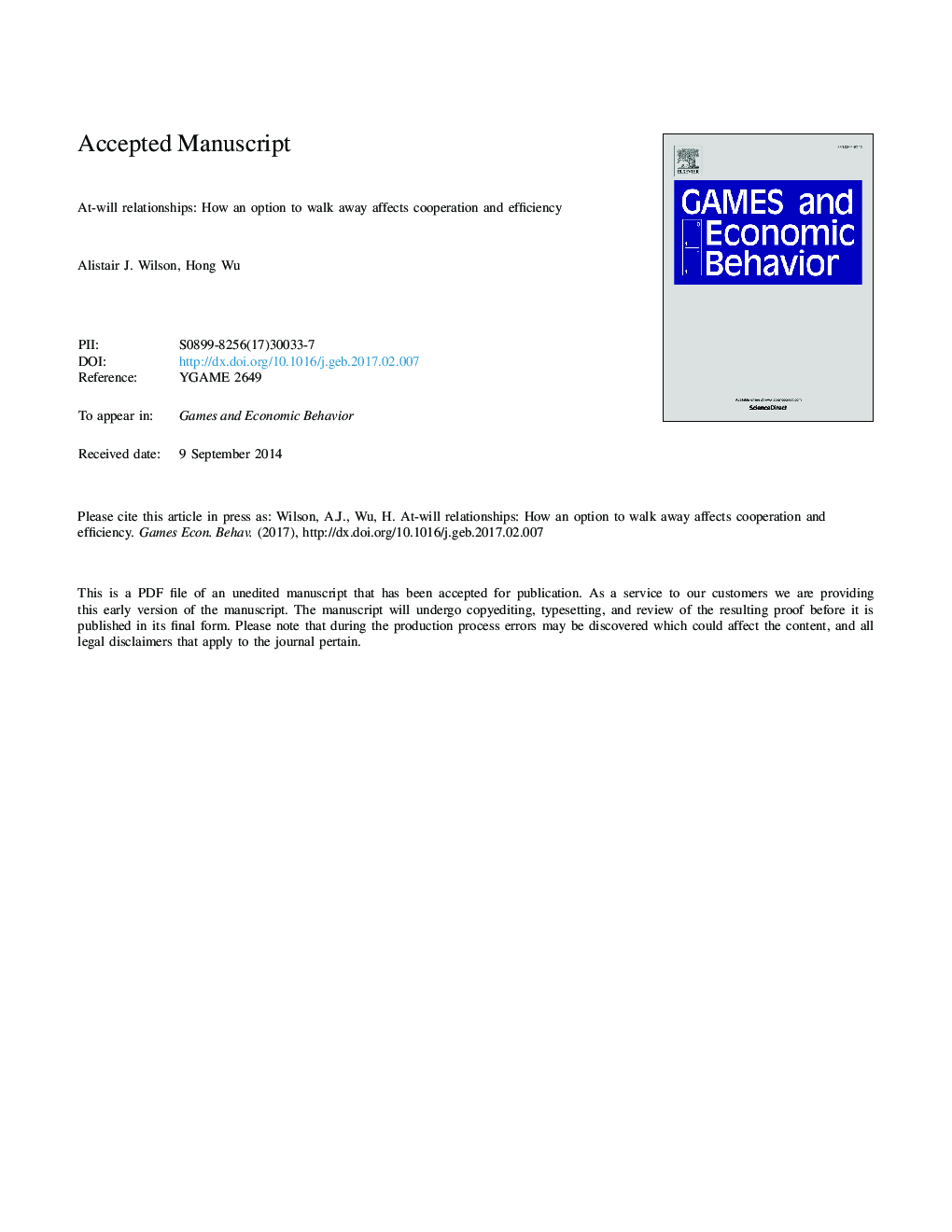| Article ID | Journal | Published Year | Pages | File Type |
|---|---|---|---|---|
| 5071303 | Games and Economic Behavior | 2017 | 34 Pages |
Abstract
We theoretically and experimentally examine the effects from adding a simple, empirically relevant action to a repeated partnership, the option to walk away. Manipulating both the value of the outside option, and its relative distribution among the partners, we examine the behavior of human subjects in a repeated prisoners' dilemma. In particular, we examine the degree of cooperation and the form of punishments used. Our findings indicate that cooperation rates are broadly unaffected by the value of the common outside option, but that the selection of supporting punishments-in-relationship defections or walking-away-are dictated by individual rationality. In contrast to the symmetric results, when outside options for partners are asymmetric we find stark selection effects over cooperation, with the potential for very high and very low efficiency, dependent on the precise division rule.
Related Topics
Social Sciences and Humanities
Economics, Econometrics and Finance
Economics and Econometrics
Authors
Alistair J. Wilson, Hong Wu,
